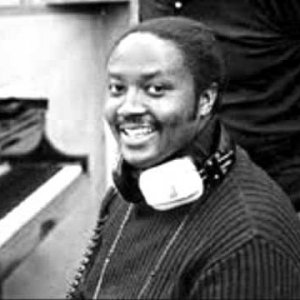- Sep 12, 2009
- 6,840
- 3,594
by Mel Reeves
Faculty and student groups a the University of Minnesota insulted history and Black America, last
month, inviting Condoleezza Rice to speak on the legacy of the Civil Rights Movement. Rice and her
immediate family rejected that Movement. “She is not a beacon of the Civil Rights Movement but,
rather, an embarrassment.”
Protesters forced former Secretary of State Condoleezza Rice to withdraw from a commencement
address at Rutgers University, in New Jersey, this week. However, demonstrators were unable to
prevent Rice from speaking to a University of Minnesota audience, three weeks ago. The author
was among the opposition.
“All the hard work in the world would not have opened the doors for Rice if there had not been a
Movement.”
There are myriad reasons why Condoleezza Rice was a bad choice to speak at the University of
Minnesota on “Keeping Faith with a Legacy of Justice: the 50th Anniversary of the 1964 Civil Rights
Act.”
The first is that it would be downright hypocritical. Rice is not an expert on Civil Rights, in fact, her
life and her career are all a reflection of her disdain for civil rights. Rice, nor her family believed in
the efficacy of the struggle for the rights of black people to be free of Jim Crow racism in the United
States. And her record as National Security Adviser and Secretary of State from 2001-2008 in the
Bush Administration indicates that she is not qualified to talk about “rights” human or civil. She
spent her entire career in Washington dedicated to separating so-called enemies of the US from
their civil and human rights.
According to Rice, the Civil Rights Movement wasn’t necessary, legal segregation (Jim Crow) would
have worked itself out and ended on its own, or collapsed under its own weight.
In a Washington Post interview years ago she said, “I felt that segregation had become not just a
real moral problem, but it had become a real pain in the neck for some [white] people, People had
begun to make their own little accommodations." Really, Dr. Rice? White southerners, out of the
kindness of their hearts, were going to give up the political, economic, and social advantages that
Jim Crow segregation had granted them? Her statement recalls what we in the black community
used to call “educated fools.” Clearly Rice, who grew up in Birmingham in the middle of the Civil
Rights struggle, has a revisionist idea of those times.
“According to Rice, the Civil Rights Movement wasn’t necessary.”
Condoleezza has bragged that her family didn’t march because her father didn’t think he could turn
the other cheek. But that’s a poor excuse, because not all of the marches called for direct
confrontation with authority. The Rice family could have gotten involved in the Movement, but they
chose to sit it out.
Read more: http://www.blackagendareport.com/content/condoleezza-rice-not-qualified-speak-civil-rights
Faculty and student groups a the University of Minnesota insulted history and Black America, last
month, inviting Condoleezza Rice to speak on the legacy of the Civil Rights Movement. Rice and her
immediate family rejected that Movement. “She is not a beacon of the Civil Rights Movement but,
rather, an embarrassment.”
Protesters forced former Secretary of State Condoleezza Rice to withdraw from a commencement
address at Rutgers University, in New Jersey, this week. However, demonstrators were unable to
prevent Rice from speaking to a University of Minnesota audience, three weeks ago. The author
was among the opposition.
“All the hard work in the world would not have opened the doors for Rice if there had not been a
Movement.”
There are myriad reasons why Condoleezza Rice was a bad choice to speak at the University of
Minnesota on “Keeping Faith with a Legacy of Justice: the 50th Anniversary of the 1964 Civil Rights
Act.”
The first is that it would be downright hypocritical. Rice is not an expert on Civil Rights, in fact, her
life and her career are all a reflection of her disdain for civil rights. Rice, nor her family believed in
the efficacy of the struggle for the rights of black people to be free of Jim Crow racism in the United
States. And her record as National Security Adviser and Secretary of State from 2001-2008 in the
Bush Administration indicates that she is not qualified to talk about “rights” human or civil. She
spent her entire career in Washington dedicated to separating so-called enemies of the US from
their civil and human rights.
According to Rice, the Civil Rights Movement wasn’t necessary, legal segregation (Jim Crow) would
have worked itself out and ended on its own, or collapsed under its own weight.
In a Washington Post interview years ago she said, “I felt that segregation had become not just a
real moral problem, but it had become a real pain in the neck for some [white] people, People had
begun to make their own little accommodations." Really, Dr. Rice? White southerners, out of the
kindness of their hearts, were going to give up the political, economic, and social advantages that
Jim Crow segregation had granted them? Her statement recalls what we in the black community
used to call “educated fools.” Clearly Rice, who grew up in Birmingham in the middle of the Civil
Rights struggle, has a revisionist idea of those times.
“According to Rice, the Civil Rights Movement wasn’t necessary.”
Condoleezza has bragged that her family didn’t march because her father didn’t think he could turn
the other cheek. But that’s a poor excuse, because not all of the marches called for direct
confrontation with authority. The Rice family could have gotten involved in the Movement, but they
chose to sit it out.
Read more: http://www.blackagendareport.com/content/condoleezza-rice-not-qualified-speak-civil-rights







 ... please make yourself at home ...
... please make yourself at home ... 